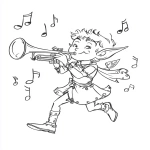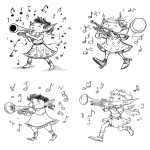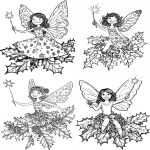Explore the Best AI Image Gallery

Capturing Visions: The Intersection of AI and Product Photography
The advancements in artificial intelligence (AI) are reshaping the traditional product photography landscape, bringing forth numerous applications as well as ethical considerations.
AI: The Game Changer of Product Photography
AI technologies enhance the creative process in product photography. With the help of AI-powered apps and software, photographers can generate high-quality images that stand out in the cluttered digital space. These technologies provide tools to create lighting effects, eliminate backgrounds, retouch images, and more, thereby saving time and resources. Furthermore, AI can enable sophisticated features such as augmented reality, which allows prospective buyers to visualize a product in a real-world setting, enhancing customer experience.
Boosting the Creative Industry
By automating tedious tasks, AI allows photographers to focus on more creative aspects of their work. It helps to generate a greater volume of content with less effort, speeding up workflows and eliminating the need for expensive equipment. AI is also opening the doors to more innovative practices in product marketing, with potential to generate images at scale, offer personalized content, and achieve more accurate targeting.
Potential Uses and Applications
AI-powered algorithms can analyze colors, shapes, patterns, and textures in an image for enhanced content discovery and personalized recommendations. Additionally, AI technology can automatically tag and categorize product images, improving website navigation and search engine optimization. It can even predict trends based on analysis of historical image data, offering a strategic advantage for businesses in planning their product lines.
Ethical Considerations
The integration of AI in product photography brings forth important ethical questions. AI applications, if misused, can manipulate images in ways that misrepresent a product or exploit software vulnerabilities. Ensuring ethical business practices and working towards legislation to regulate the use of AI in photography is therefore a critical consideration.
Looking Forward
The future of product photography in the AI era is incredibly promising. As technology continues to evolve, we can expect to see more sophisticated AI tools that enhance both the creative process and the consumer shopping experience. However, as with all technological advancements, businesses and creatives must strive to adopt these innovations responsibly.






](https://images.ai-img.art/thumbnails/150/baf01e7f997f5bc030aa10831575d8b879a4a6755830df4bcd3dcc93346ef1dd.webp)

](https://images.ai-img.art/thumbnails/150/4dfe5499f7f4f9e5aa1613199c58710634f2cba5f57ac7e6717c1d56a9864e1a.webp)



](https://images.ai-img.art/thumbnails/150/ed631f35091268316da1950d8f24949cf71c41220d75ddecc89232e1c28f3653.webp)


















](https://images.ai-img.art/thumbnails/150/fd852e87169bf2f63982b31f7f16a8fa335d75d9536fd48c2b87c7d4b035fa7c.webp)




](https://images.ai-img.art/thumbnails/150/56d08b81b5991eca46f50c80b41db4e9ac06c775cbbf5138ea0734d93390316a.webp)











](https://images.ai-img.art/thumbnails/150/e407417f3921a9491278afc6484ec26f3ae374d4543e1a56898e8bcb1e41a0da.webp)
